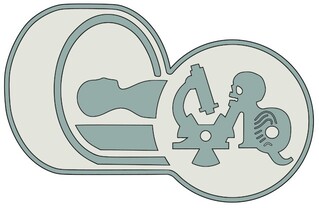Big data has revolutionized industries across the globe, and healthcare is no exception. The ability to collect, store, and analyze vast amounts of data has opened up new possibilities for improving patient care, streamlining operations, and driving innovation in the healthcare sector. One area where big data is making a significant impact is in healthcare analytics.
Healthcare analytics refers to the use of data analysis tools and techniques to improve clinical outcomes, patient engagement, and operational efficiency in healthcare organizations. By harnessing the power of big data, healthcare providers can gain valuable insights into patient populations, treatment effectiveness, and disease trends, allowing them to make more informed decisions and deliver better care.
One of the key applications of big data in healthcare analytics is in predictive modeling. By analyzing patterns in patient data, healthcare providers can use predictive modeling to identify patients at risk of developing certain conditions, such as heart disease or diabetes, and intervene early to prevent or manage these conditions. This can help to improve patient outcomes, reduce healthcare costs, and enhance the overall quality of care.
Another important application of big data in healthcare analytics is in population health management. By analyzing large datasets of patient information, healthcare providers can identify trends and patterns in disease prevalence, treatment outcomes, and healthcare utilization, allowing them to tailor interventions to meet the specific needs of different patient populations. This can help to improve health outcomes, reduce disparities in care, and optimize resource allocation within healthcare organizations.
In addition to improving patient care, big data is also being used to drive innovation in healthcare. For example, researchers are using big data analytics to develop new treatments and therapies, identify genetic markers for disease risk, and personalize medical treatments based on individual patient characteristics. By leveraging the power of big data, healthcare providers can advance medical knowledge, improve treatment outcomes, and ultimately save lives.
One innovative application of big data in healthcare analytics that is gaining traction is the use of elevator mortuary hydraulic technology. Elevator mortuary hydraulic systems use sensors and data analysis tools to monitor and manage the flow of bodies in hospital mortuaries, ensuring that bodies are stored and transported in a safe and efficient manner. By analyzing data on body flow, temperature, and other factors, elevator mortuary hydraulic systems can help healthcare providers to streamline mortuary operations, reduce costs, and improve the overall management of deceased patients.
In conclusion, big data is transforming healthcare analytics in profound ways. By leveraging the power of big data, healthcare providers can improve patient care, drive innovation, and optimize operations within healthcare organizations. The use of elevator mortuary hydraulic technology is just one example of how big data is being harnessed to improve healthcare delivery and enhance patient outcomes. The possibilities are endless, and the future of healthcare analytics looks brighter than ever.
For more information visit:
MEDEQTECH
https://www.medeqtech.com/
0040727210655
COMUNA DENTA, STR PRINCIPALA NR.823, JUD. TIMIS
Produse si echipamente funerare. Distribuitor autorizat de produse biocide TP22 pentru imbalsamare – tanatopraxie – taxidermie. Reprezentant Hygeco Romania – Hygeco Post Mortem Assistance – Institutul Francez de Tanatopraxie.
For more information on elevator mortuar hidraulic contact us anytime:
MEDEQTECH
https://www.medeqtech.com/
0040727210655
COMUNA DENTA, STR PRINCIPALA NR.823, JUD. TIMIS
Produse si echipamente funerare. Distribuitor autorizat de produse biocide TP22 pentru imbalsamare – tanatopraxie – taxidermie. Reprezentant Hygeco Romania – Hygeco Post Mortem Assistance – Institutul Francez de Tanatopraxie.


